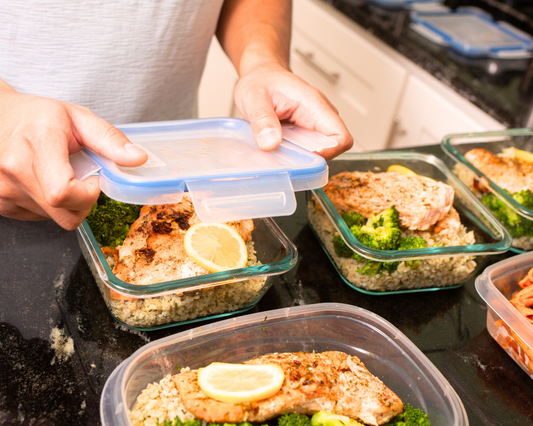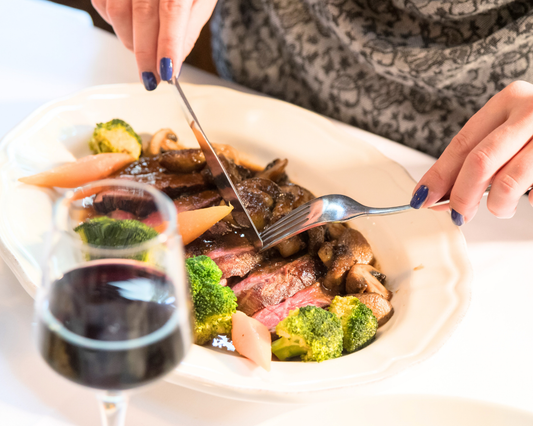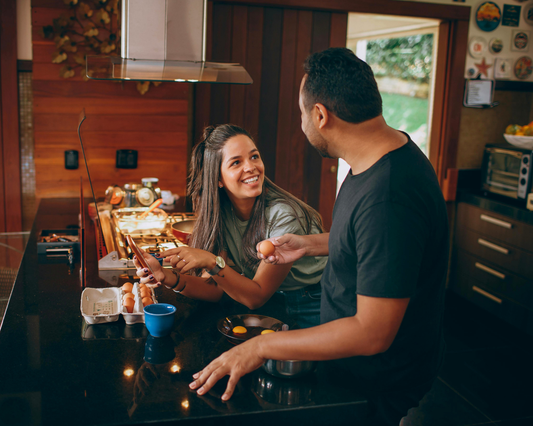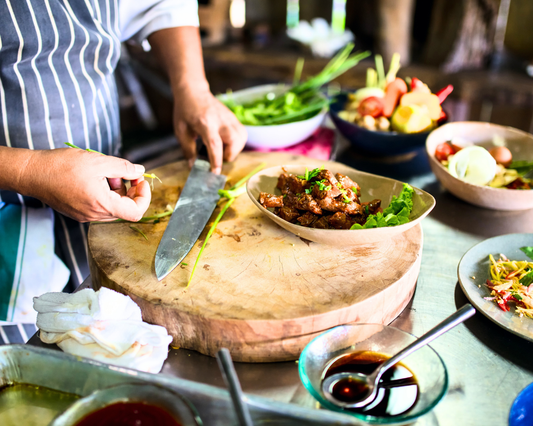Whether you're firing up the grill in the backyard or sizzling a cast iron pan on your stove, knowing how to cook a steak to the perfect doneness is key to a satisfying meal. In Canada, steak is more than just food — it's a culinary staple for everything from family dinners to summer BBQs. That’s why understanding steak doneness isn’t just helpful, it’s essential.
This comprehensive guide will break down everything you need to know about steak doneness, from rare to well-done, including internal temperature charts (in Celsius and Fahrenheit), visual cues, texture, and pro cooking tips. Whether you prefer your steak with a cool red centre or cooked right through, we’ve got you covered.
Why Steak Doneness Matters
Steak doneness affects more than just how "cooked" the meat is. It impacts:
- Flavour
- Juiciness
- Tenderness
- Safety (especially with ground steak or less tender cuts)
The way a steak is cooked can transform a good piece of meat into an unforgettable experience — or ruin it with dryness and toughness. That's why it’s so important to get it right.
Canadian Steak Doneness Chart
Here’s your go-to steak doneness chart with internal temperatures in both Celsius and Fahrenheit — ideal for Canadian kitchens and grills.
|
Doneness Level |
Internal Temp (°C) |
Internal Temp (°F) |
Centre Appearance |
Texture |
|
Rare |
50–52°C |
120–125°F |
Cool, red centre |
Very soft, juicy |
|
Medium Rare |
57°C |
135°F |
Warm, red centre |
Tender, juicy |
|
Medium |
63°C |
145°F |
Warm, pink centre |
Slightly firm |
|
Medium Well |
68–70°C |
155–160°F |
Slightly pink centre |
Firm, less juicy |
|
Well Done |
74°C+ |
165°F+ |
Brown throughout |
Very firm, dry |
💡 Tip: Remove the steak from heat a few degrees before your target temperature — it will continue to cook while resting.
Visual & Touch Cues for Steak Doneness
While a thermometer gives you the most accurate read, you can also use sight and touch:
- Rare: Deep red inside, very soft when pressed
- Medium Rare: Red to pink, springy with a soft centre
- Medium: Light pink, firmer to the touch
- Medium Well: Mostly brown with faint pink, firm texture
- Well Done: Fully brown inside, very firm
Tools of the Trade
Want consistent results every time? Here's what you need:
- Digital Meat Thermometer – A must-have for accurate doneness.
- Cast Iron Skillet or Grill – Ideal for even cooking and a perfect sear.
- Tongs – Avoid stabbing the steak with a fork and losing precious juices.
Resting Makes the Difference
Once your steak reaches the desired doneness, let it rest for 5 to 10 minutes. Resting allows the juices to redistribute, making the steak more flavourful and tender.
Skipping this step? Expect a dry, chewy bite — even if you nailed the cooking temperature.
Best Doneness for Different Steak Cuts
Not all steaks should be cooked the same way. Here’s a quick guide to the best doneness for popular Canadian cuts:
- Filet Mignon / Tenderloin: Best served rare to medium rare to maintain tenderness.
- Ribeye: Delicious medium rare or medium, which enhances the marbled fat flavour.
- New York Strip / Striploin: Great from medium rare to medium.
- Sirloin: Slightly leaner, works well at medium.
- Flank or Skirt: More flavourful but tough; best cooked medium rare and sliced thin against the grain.
How to Cook the Perfect Steak
Here’s a step-by-step method to cook a perfect steak to any doneness:
Step 1: Prep Your Steak
- Remove from fridge and let it sit at room temperature for 30 minutes.
- Pat dry with paper towel and season generously with salt and pepper.
Step 2: Sear It Hot
- Preheat your skillet or BBQ to high heat.
- Add steak and sear for 2–3 minutes per side until a golden-brown crust forms.
Step 3: Finish and Check Temp
- Lower heat or transfer to indirect heat zone.
- Insert meat thermometer and monitor closely.
Step 4: Rest and Serve
- Rest the steak under foil for 5–10 minutes.
- Slice and enjoy!
Steak Doneness for Special Occasions
- Date Night: Go for medium rare ribeye — rich, tender, and full of flavour.
- Father’s Day BBQ: Offer a mix — let guests choose rare to well-done.
- Weeknight Dinner: Sirloin at medium offers a balance of flavour and affordability.
Common Mistakes to Avoid
- ❌ Cutting into steak to check doneness (lets juices escape!)
- ❌ Guessing instead of using a thermometer
- ❌ Overcooking tender cuts
- ❌ Skipping the resting phase
- ❌ Cooking straight from the fridge
Steak Tips
- Look for AAA or Prime beef — widely available across Canada and known for better marbling.
- For year-round steak, use a cast iron skillet indoors during the winter.
- Use local Canadian spices.
- Cooking in colder outdoor temperatures? Give your grill more preheat time and adjust cooking times slightly.











